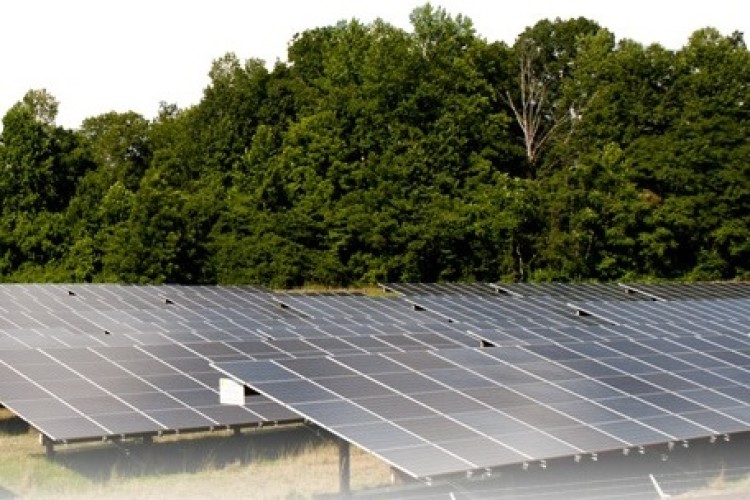The proposals cover both the Renewables Obligation (RO) for bigger projects, and changes to rules on the Feed-in Tariff (FiT) for smaller projects.
The Renewables Obligation, which currently supports rooftop and solar farm projects between 50KW and 5MW, is to be closed from 1st April 2016, as well as a planned reduction in levels of support for projects currently in the pipeline. DECC is also proposing to end ‘grandfathering’ within the scheme, the guarantee that a certain level of subsidy will be provided throughout the lifetime of a solar project once built.
This follows a similar move last year which already excluded solar farms of more than 5MW in size – about 25 acres – from receiving support from the scheme as of 1 April 2015 earlier this year.
It is also in line with the scrapping of subsidies for onshore wind power, announced in June.
The Renewable Energy Association (REA) said of the solar subsidy cuts: “The government has been trailing their concerns over the projected budget for the Levy Control Framework (LCF) over the last few weeks so the announcements of changes were not unexpected. However, in ending the RO early for solar less than 5MW they are contributing to yet more uncertainty in the industry, especially with the scope of the FiT review not yet released. It is now essential that any considerations/changes in the FiT review do not compromise solar’s ability to achieve grid-parity with a sustainable industry that will sustain itself without support. The changes to grandfathering in the RO with immediate effect are unprecedented and although the grace period is in place the lack of grandfathering undermines this. This could have an effect on companies’ existing pipelines and the REA will be consulting with its members to assess the impact.”
The Solar Trade Association’s head of external affairs Leonie Greene said: “This is damaging for big solar rooftops as well as solar farms, both very cost-effective ways of generating solar power. This contrasts with repeated commitments from government to boost the commercial solar rooftop market. The possible removal going forwards of the guarantee on a set level of support throughout a project’s lifetime once built is a real blow to investor confidence.

“There is no pledge in the Conservative manifesto about cutting support for solar, so we are disappointed by this move. Solar is the nation’s most popular form of energy, as the government’s own opinion polls have shown. We recognise that government wants to shift the emphasis to larger solar rooftops, but we have explained to the Department that these are just 5% of the UK market. More work is needed urgently to unlock larger solar roofs. There is a danger if government pulls the rug on the solar farm industry too early, the market will have nowhere to go. This could be further compounded by changes to the Contracts for Difference auctions. What we need is a bridging strategy and we are very keen to work with DECC to achieve that.”
Greg Barker was energy minister until earlier this year when he decided not to run for Parliament again. He is now on the other side of the fence as president of the British Photovoltaic Association. He described the subsidy axe as “a big challenge to the UK solar industry and in the short term very problematic for a number of companies”.
He said: “But I really hope that the sector can avoid the hysteria and self-damaging doom mongering that we saw in 2011. We need to focus on the fact that this review is a response to much faster and more successful clean energy deployment than anyone expected; exceptional growth that has made the UK the fastest growing solar market in Europe. [Energy secretary] Amber Rudd has proved herself to be a real believer in solar and a genuine friend to the industry but that doesn’t mean we can duck the simple truth that the budget for renewables, thanks to massively successful deployment, has now all but gone, way ahead of time. So now, the industry needs to work closely with DECC in a genuine spirit of cooperation and financial realism to target and stretch the remaining budget in the current LCF, in the most cost effective way possible.
“Around the world the solar industry is already operating without subsidy and there are still further opportunities to create additional value and extract further efficiency savings in the UK sector. Innovation and enhancing the customer offer are going to be key to growth and success, as the path to zero subsidy grows even shorter.”
Mr Barker continued: “It is time to muster up an optimistic ‘can do’ ethic and talk up the huge success and enormous potential of UK solar not plead for years more subsidy. The government needs to listen very carefully to the most progressive voices in the sector and to focus the remaining budget in the right place but also work with the industry to help solar entrepreneurs create value with new and enhanced business models and by unblocking other barriers to growth. I am confident that working sensibly together, Amber can steer the sector through to the bright future it deserves.”
Got a story? Email news@theconstructionindex.co.uk



